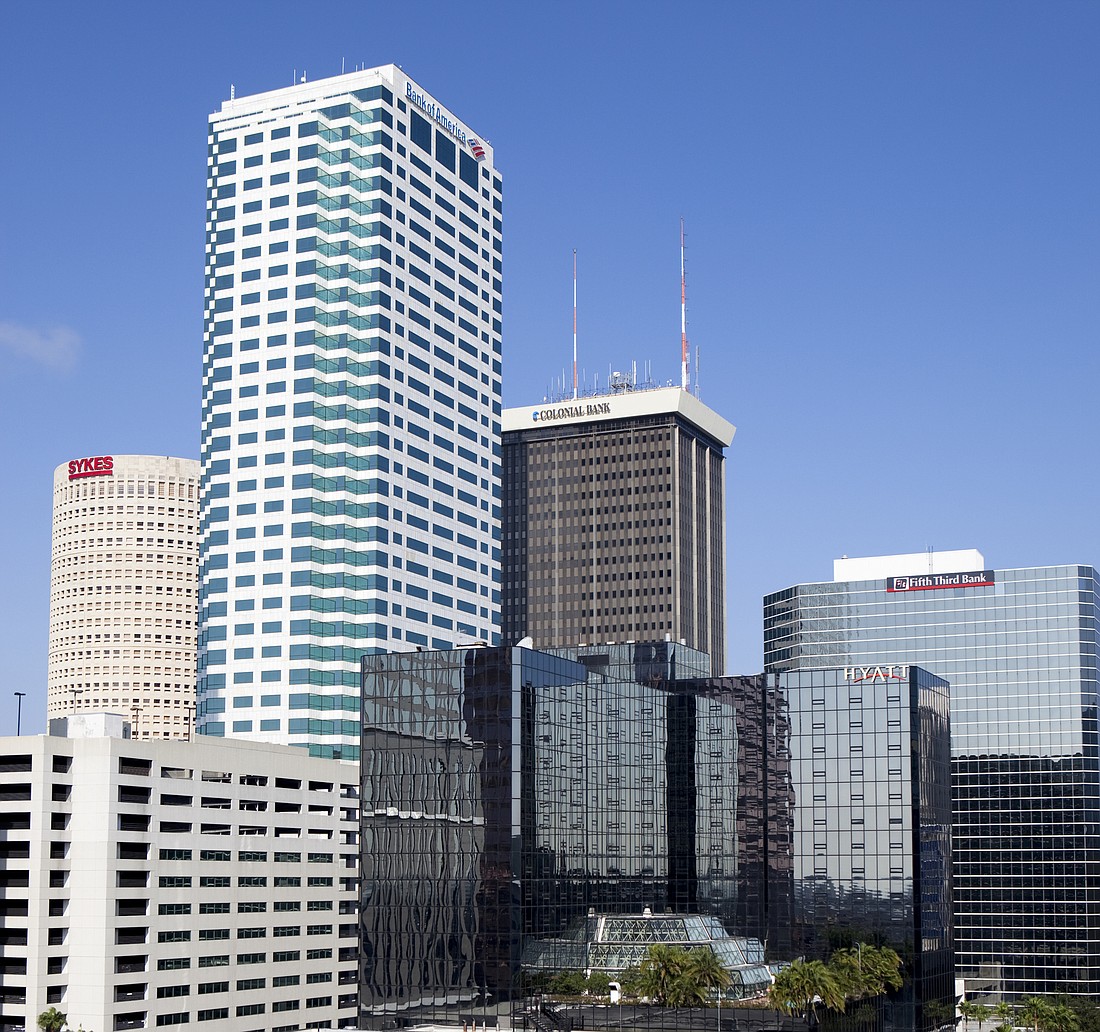- January 14, 2025
-
-
Loading

Loading

Tampa Bay area banks and other lenders are bracing for a wave of commercial real estate loan defaults that are anticipated in the new year, with hospitality properties and retail projects impacted by the COVID-19 crisis the most vulnerable.
At the same time, however, industrial development in the Interstate 4 corridor between is Tampa and Orlando appears poised for continued growth, with one expert claiming there is “no end in sight” to development to accommodate online consumer shopping.
“We’re not seeing many defaults yet, but we as an industry truly believe they are coming,” says Owen LaFave, a senior vice president at the Bank of Tampa and the lender’s market leader in Pinellas County.
“Our bank and others are now stockpiling loan loss reserves against the risk of future distressed non-performing loans,” LaFave says as part of a monthly online panel discussion late last month hosted by Tampa-based commercial real estate brokerage firm Eshenbaugh Land Co.
“We’re expecting substantial defaults and foreclosures, beginning the first quarter of next year and continuing for the following four- to six quarters, particularly in the areas of hospitality, retail and possibly office space,” LaFave adds. “I think we’re in many cases going to have to re-imagine office space.”
He adds that under the federal CARES Act, lenders are able to provide loan forbearance to borrowers until the end of the year, at which time they’ll be forced to act on non-performing and delinquent debts.
But while hospitality, restaurants and entertainment venues have struggled amid the pandemic, industrial space has flourished.
Larry Jimenez Jr., vice president of business development at Star Distribution Systems, a third-party logistics firm that traces its roots to 1892 in the Tampa area, says the demand for distribution space within the Interstate 4 corridor — a tract capable of reaching nearly 20 million consumers within a day’s drive — is exploding.
“Prior to the pandemic, I think there was a concern about overbuilding. The question was do we have too much inventory?” says Jimenez. “Now, we can’t build new buildings quickly enough.”
He notes the biggest distribution challenge to date is that many manufacturers — from LG Electronics to Trane — simply can’t produce enough goods to be distributed to retailers like Home Depot.
Bill Eshenbaugh, the brokerage firm’s founder, asked Jimenez if stretches of the highway in Hillsborough County that haven’t been developed will ever see industrial activity.
“I think it will fill in over time,” Jimenez says. “I don’t see any end in sight. The area has a good labor source, and that’s key.”
LaFave, meanwhile, says loans are still being originated for commercial properties other than distribution centers, though in many cases the activity is “subdued.”
“We’re hearing from a lot of people seeking bridge loans, but they are hard to underwrite now,” he says. “Because we’re anticipating foreclosures and defaults, naturally banks tend to go into a prevent defense mode and tighten credit standards.
Industrywide, LaFave says 70% of all banks are tightening credit.
Even so, he contends the Tampa Bay area’s diversified economy, low unemployment and influx of Northeastern residents are helping the region weather COVID-19 turbulence.
“So we’re bullish long term,” he says.
But the banker isn’t as confident about the next 18 months or so. He’s already beginning to see properties edge into distressed territory.
Roughly one quarter of all hotels secured by commercial mortgage-backed securities (CMBS) are at risk for default, he says, as compared to just 9% of all loans that fell into default during the last economic recession.
“There’s a mild, nuanced increase in defaults we’ve seen to date,” he says.
The future of office space also remains in question. LaFave says reports he’s read indicate as many as 30% of all office workers will work primarily from home into the future.
Even if that figure is cut in half as employers grapple with productivity and consistency, the trend will have tremendous implications for future office space occupancy.
For now, though, LaFave says he is preoccupied with a possible onslaught of defaults that could impact the commercial real estate industry throughout the Tampa Bay area, a wave that could touch off foreclosures, hikes in real estate-owned properties on bank balance sheets and subsequent resales — often at greatly discounted prices.
“It’s coming, it’s just not here yet,” he says.